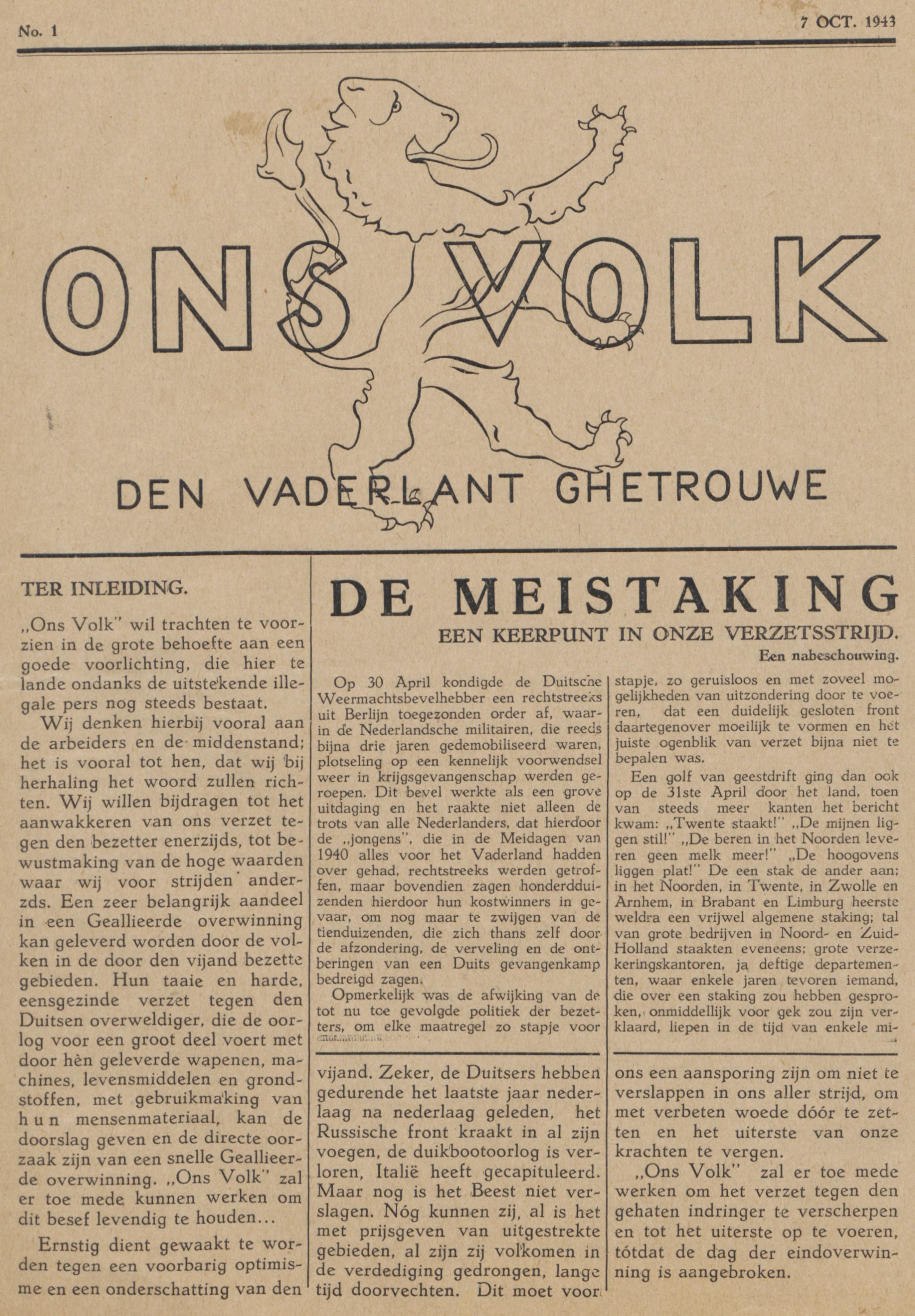Dutch Underground Press on:
[Wikipedia]
[Google]
[Amazon]
 The Dutch underground press was part of the resistance to the
The Dutch underground press was part of the resistance to the
Dutch underground press collection at the British Library
Military history of the Netherlands during World War II {{World-War-II-stub
 The Dutch underground press was part of the resistance to the
The Dutch underground press was part of the resistance to the German occupation of the Netherlands
Despite Dutch neutrality, Nazi Germany invaded the Netherlands on 10 May 1940 as part of Fall Gelb (Case Yellow). On 15 May 1940, one day after the bombing of Rotterdam, the Dutch forces surrendered. The Dutch government and the royal family re ...
during World War II
World War II or the Second World War, often abbreviated as WWII or WW2, was a world war that lasted from 1939 to 1945. It involved the vast majority of the world's countries—including all of the great powers—forming two opposin ...
, paralleling the emergence of underground media across German-occupied Europe.
After the occupation of the Netherlands in May 1940, the Germans quickly took control over the existing Dutch press and enforced censorship and publication of Nazi propaganda
Propaganda is communication that is primarily used to influence or persuade an audience to further an agenda, which may not be objective and may be selectively presenting facts to encourage a particular synthesis or perception, or using loaded ...
. In response, independent Dutch citizens organized uncensored publishing of their own illegal papers. These papers were cherished by the population, and were better trusted than the official papers. Issues were distributed and passed on, even though there were heavy penalties (including the death penalty
Capital punishment, also known as the death penalty, is the state-sanctioned practice of deliberately killing a person as a punishment for an actual or supposed crime, usually following an authorized, rule-governed process to conclude that t ...
) for those involved with illegal anti-Nazi publications.
Some of modern-day Netherlands press and magazine originate from this period, including:
*''Trouw
''Trouw'' (; ) is a Dutch daily newspaper appearing in compact size. It was founded in 1943 as an orthodox Protestant underground newspaper during World War II. Since 2009, it has been owned by DPG Media (known as De Persgroep until 2019). ''Tr ...
'',
*''Het Parool
''Het Parool'' () is an Amsterdam-based daily newspaper. It was first published on 10 February 1941 as a resistance paper during the German occupation of the Netherlands (1940–1945). In English, its name means ''The Password'' or ''The Motto' ...
''
*''Vrij Nederland
''Vrij Nederland'' (Free Netherlands) is a Dutch magazine, established during the German occupation of the Netherlands in World War II as an underground newspaper. It has since grown into a magazine. The originally weekly and now monthly magaz ...
''
A collection is maintained in the British Library
The British Library is the national library of the United Kingdom and is one of the largest libraries in the world. It is estimated to contain between 170 and 200 million items from many countries. As a legal deposit library, the British ...
in London
London is the capital and largest city of England and the United Kingdom, with a population of just under 9 million. It stands on the River Thames in south-east England at the head of a estuary down to the North Sea, and has been a majo ...
and by the NIOD Institute for War, Holocaust and Genocide Studies
The NIOD Institute for War, Holocaust and Genocide Studies (Dutch: ''NIOD Instituut voor Oorlogs-, Holocaust- en Genocidestudies'') is an organisation in the Netherlands which maintains archives and carries out historical studies into the Second Wo ...
in Amsterdam
Amsterdam ( , , , lit. ''The Dam on the River Amstel'') is the Capital of the Netherlands, capital and Municipalities of the Netherlands, most populous city of the Netherlands, with The Hague being the seat of government. It has a population ...
.
Further reading
* * *External links
Dutch underground press collection at the British Library
Military history of the Netherlands during World War II {{World-War-II-stub